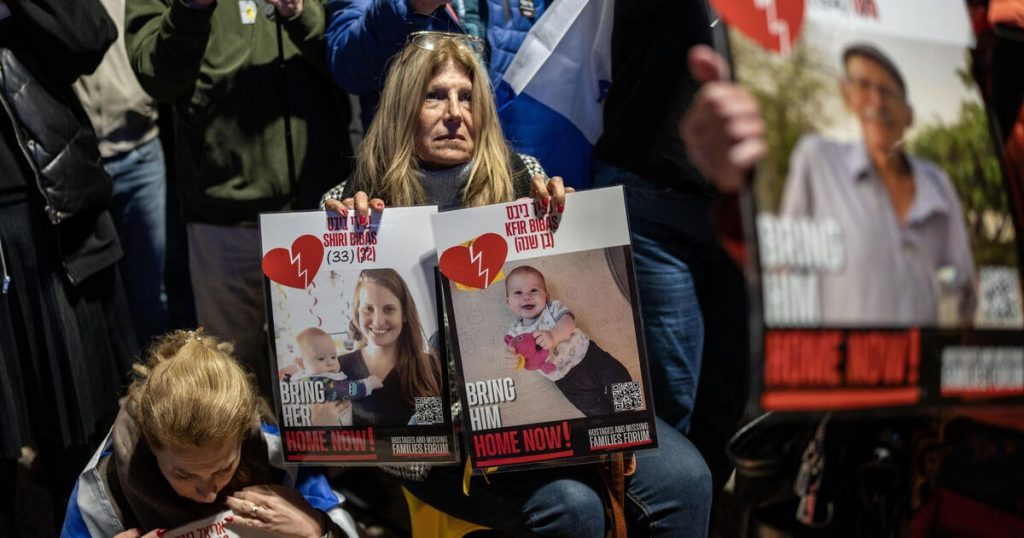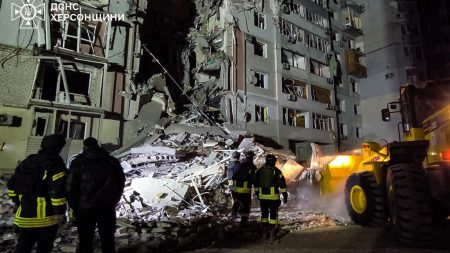Netanyahu Vows Retribution as Hamas Returns Wrong Body, Escalating Gaza Tensions
Prime Minister Benjamin Netanyahu vowed to make Hamas pay "the full price" for what he called a "cruel and wicked violation" of the fragile Gaza ceasefire agreement. The incident occurred when Hamas returned the remains of an unidentified Gazan woman instead of Shiri Bibas, an Israeli mother taken hostage alongside her two young children during the October 7, 2023, terrorist attack. The handover was part of a ceasefire deal that went into effect on January 19, under which Hamas was expected to return the bodies of Bibas, her two slain sons, Ariel (4) and Kfir (9 months old), and Oded Lifshitz (83). While the remains of Ariel, Kfir, and Lifshitz were returned, Bibas’ body was conspicuously absent, replaced by the body of the Gazan woman. Netanyahu condemned the act, stating, "Hamas put the body of a Gazan woman in a coffin" instead of Bibas’. He vowed to avenge the deaths of the victims, saying, "May God avenge their blood. And so will we."
Hamas has since November 2023 claimed that Bibas, her children, and Lifshitz were killed in Israeli bombing in Gaza, along with some militants who were holding them captive. Yarden Bibas, the father of the children, was taken separately but was released earlier this month after 16 months in captivity. The mistaken handover has further strained the already fragile ceasefire, which is set to complete its first six-week phase soon.
Hamas Claims Possible Error, International Community Condemns Handling of Bodies
Hamas issued a statement on Friday, acknowledging the possibility of a mistake in the handover. The group claimed that the error may have occurred due to Israeli bombing targeting the location where the family was held. Hamas stated it would investigate the claims "with complete seriousness" and reaffirmed its commitment to the ceasefire terms. The group also called on Israel to return the remains of the unidentified Gazan woman to Gaza.
However, the international community, including the International Committee of the Red Cross (ICRC) and United Nations Secretary-General António Guterres, has condemned the handling of the bodies. The ICRC expressed concern over the public and undignified manner in which the remains were transferred, emphasizing that the organization does not participate in identifying or examining the deceased, as this is the responsibility of the conflicting parties. Guterres also condemned Hamas for parading the bodies and displaying the coffins of the deceased Israeli hostages, violating international law prohibiting cruel, inhuman, or degrading treatment.
The incident has drawn widespread criticism, with Israeli officials and the Trump administration expressing outrage over the disrespect shown to the victims and their families. The situation has placed the ceasefire in a precarious position, just a week before the first phase of the agreement is set to end.
Fragile Ceasefire at Risk as Netanyahu Faces Pressure to Resume Military Action
The mistaken handover has further destabilized the ceasefire, which was already under strain. While the final six Israeli hostages are scheduled to be released on Saturday, and Israel is expected to release more Palestinian prisoners, there is growing uncertainty about the future of the agreement. Talks to outline the terms of the second phase of the ceasefire, set to begin in March, have yet to commence, with no indication of progress from Israel, Hamas, or the U.S. and its regional partners, Qatar and Egypt, who helped negotiate the deal.
Netanyahu, under pressure from far-right members of his cabinet, has been urged to end the ceasefire and resume military operations in Gaza. Netanyahu himself has repeatedly emphasized that the goal of the war is to disarm, if not destroy, Hamas. The Trump administration has firmly backed this objective, with Secretary of State Marco Rubio referring to Hamas as "evil, terrible people" and stating that as long as Hamas remains in Gaza, peace is unattainable.
Families of Hostages Urge Restraint, Call for Immediate Release of Captives
Despite the mounting tensions, the families of the hostages have pleaded for restraint and urged the Israeli government to prioritize the safe return of the remaining captives. The community of Kibbutz Nir Oz, from which the Bibas children and their mother were abducted, released a statement calling on the government to focus on securing the release of Shiri Bibas and the other hostages. "The state must bring Shiri back by all means, in a way that will not hinder the continuation of the deal and the immediate release of all hostages," the statement read.
The Hostages and Missing Families Forum, representing the families of all Israelis taken captive during the October 7 attack, expressed horror and devastation over the news that Bibas’ remains were not returned. The group issued a heartfelt plea to the international community, urging it not to look away from the plight of the 70 Israelis still held captive in Gaza. "In Hamas’ hell in Gaza, 70 more of our children, brothers, sisters, and parents remain in captivity, enduring unimaginable terror. Do not abandon them to their fate. Save them from this nightmare," the forum said.
Human Cost of the Conflict Continues to Mount
The Israel-Hamas war, now in its 15th month, has exacted a devastating toll on both sides. According to Gaza’s Hamas-run Ministry of Health, over 48,000 people have been killed in Gaza, while approximately 1,200 Israelis were killed in the initial terrorist attack that sparked the conflict. The war has left deep scars, with families on both sides grappling with the loss of loved ones and the ongoing uncertainty of those still missing or held captive.
The conflict has also raised questions about the long-term prospects for peace in the region. With Hamas refusing to disarm and Israel determined to neutralize the group’s military capabilities, the path to a lasting resolution remains uncertain. For now, the focus remains on securing the release of the hostages and upholding the fragile ceasefire, even as tensions threaten to boil over.
Conclusion: A Conflict with No End in Sight
The mistaken handover of the Gazan woman’s body has underscored the complexity and volatility of the Israel-Hamas conflict. While the families of the hostages continue to plead for their loved ones’ safe return, the political and military stakes remain high. Netanyahu’s vow to make Hamas pay for its actions, combined with the Trump administration’s unwavering support for Israel’s objectives, suggests that the conflict is far from over.
As the ceasefire teeters on the brink of collapse, the international community must remain vigilant in advocating for the dignity of the deceased, the safe return of hostages, and a peaceful resolution to the conflict. The human cost of the war continues to mount, and the world cannot afford to look away from the suffering of those caught in the crossfire. The next few weeks will be critical in determining whether the ceasefire can hold and whether a path to lasting peace can be forged.















